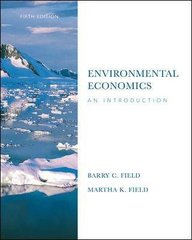Answered step by step
Verified Expert Solution
Question
1 Approved Answer
Suppose that a decision maker strictly prefers a to b and b to c. Consider the lotteries 1 = [ : 0.6 , : 0.4
Suppose that a decision maker strictly prefers a to b and b to c. Consider the lotteries 1 = [ : 0.6 , : 0.4 ] L 1 =[a:0.6,b:0.4] and 2 = [ : 0.4 , : 0.6 ] L 2 =[b:0.4,c:0.6]. Assuming that the decision maker's preferences are rational and that she compares lotteries by maximizing expected utility, which of the following is true: The following multiple-choice options contain math elements, so you may need to read them in your screen reader's "reading" or "browse" mode instead of "forms" or "focus" mode. Choice 1 of 4:The decision maker strictly prefers 1 L 1 over 2 L 2 . Choice 2 of 4:The decision maker strictly prefers 2 L 2 over 1 L 1 . Choice 3 of 4:The decision maker is indifferent between 1 L 1 and 2 L 2 . Choice 4 of 4:There is not enough information to answer this
Step by Step Solution
There are 3 Steps involved in it
Step: 1

Get Instant Access to Expert-Tailored Solutions
See step-by-step solutions with expert insights and AI powered tools for academic success
Step: 2

Step: 3

Ace Your Homework with AI
Get the answers you need in no time with our AI-driven, step-by-step assistance
Get Started


